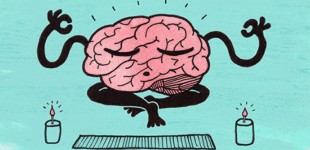Big Pharma to Cash-in Big on Alzheimer’s Victims
March 30
13:24
2016
It’s been several decades in the making, but Big Pharma may soon have the biggest payout in the history of the industry. With many of its current herd of cash cows either about to go off-patent or already there, pharma is feeling a little anemic. It needs an infusion of cash, and it’s set its sights firmly on Alzheimer’s disease as just the thing to fill the bill.
Don’t get me wrong. I want someone to find the cure for Alzheimer’s. I’ve seen first-hand the devastation this disease can leave behind. First with my Grandfather, then with my own mother. More than most, I want to see a real treatment. And there’s a flood of new medications due to hit the market in the next few years. But the ever-expanding guidelines for diagnosing Alzheimer’s (“asymptomatic Alzheimer’s,” anyone? Or “pre-clinical Alzheimer’s”?) suggest that there’s more to the story than the desire to heal.
 The guidelines guarantee an expanded market for any drugs that are developed. And a partnership between the NIH, the FDA, and ten of the biggest Big Pharma companies has guaranteed a substantial load of funding to do just that. There are currently dozens of Alzheimer’s drugs in development — nearly every pharma company out there has at least one currently being tested. Whoever hits the market first stands to make billions. Possibly trillions. And it would be nice to think that any drug that gets approved will actually do some good. Past history, however, suggests that’s probably not the case.
The guidelines guarantee an expanded market for any drugs that are developed. And a partnership between the NIH, the FDA, and ten of the biggest Big Pharma companies has guaranteed a substantial load of funding to do just that. There are currently dozens of Alzheimer’s drugs in development — nearly every pharma company out there has at least one currently being tested. Whoever hits the market first stands to make billions. Possibly trillions. And it would be nice to think that any drug that gets approved will actually do some good. Past history, however, suggests that’s probably not the case.There are currently only five Alzheimer’s drugs on the market. The unanimous opinion is that they have “very little effect” but an extremely high risk of side effects.
They do nothing to treat the disease. Four of them have a side-effect incidence of over 80%, while the fifth has a 51% rate. Side-effects are often so bad that patients stop taking them. Drugs allegedly slow the disease minutely, but considering that each case progresses at a different rate, even that is open to debate. However, that hasn’t stopped Big Pharma from making a $5 billion-dollar-per-year profit. Is there any real reason to think they’ve had a change of heart?
No. Big Pharma and Big Medicine have worked long and hard to put Alzheimer’s in the spotlight, and now they’re about to reap their rewards. Our health has nothing to do with it.
Creating the bogeyman
Alzheimer’s has left an emotional tear in my family that we will feel for the rest of our lives. My heart and prayers go out to any family who is experiencing the same devastation. This pain is only compounded by the greed of these money-hungry giants. It burns me up the way they can manipulate Alzheimer’s and take advantage of its victims. They’re using it as a weapon to bleed us dry.
Consider this: according to the Alzheimer’s Association, a shocking one person in nine over age 65 has Alzheimer’s.
1 Natural Trick to Fight Back Memory Loss and Alzheimer’s
Let’s face it, the pharmaceutical giants don’t want me to reveal to you this shocking underground
secret allowing you to fight brain diseases such as Alzheimer’s and dementia.
Because they won’t make any “drug money” from this all-natural solution.
This controversial technique has been scientifically proven to dramatically increase cognitive
health, boost memory, focus and concentration.
I’ll be revealing exactly what I mean by that in this video:
That’s a pretty scary number, but how accurate is it? 1 in 9 means that if you only know 10 people who are 65 or over, at least one of them should have Alzheimer’s. If you know 50 people in that age group, you should know 5 or 6 people with Alzheimer’s. And if you have a wide circle of acquaintances, 11 of every 100 should have Alzheimer’s disease.
Put another way, if we’re to believe the statistics, Alzheimer’s is as common as diabetes.
Maybe I just live in a particularly healthy area, but I don’t know that many people with Alzheimer’s. I don’t know anyone else who does. And I’ll bet you don’t either. I do, however, know a lot of people with diabetes. I think the estimates of Alzheimer’s are blown way out of proportion, and the Alzheimer’s Association tacitly admits this is the case. They say:
In the community, only about half of those who would meet the criteria for Alzheimer’s disease and other dementias are diagnosed with dementia by a physician.
In other words, “We’re inflating the numbers because the real numbers aren’t scary enough.”
Well, that explains it. They’re actually guessing how many people have Alzheimer’s rather than using real numbers. They’re also calling for “expanded” guidelines for diagnosis. They’d like to start using invasive physical tests to check for signs that may indicate Alzheimer’s might develop later…or might not.
Under the current guidelines, Alzheimer’s can’t be diagnosed till a person actually has memory loss. That’s the defining symptom. The National Institutes on Aging (NIA) and the Alzheimer’s Association would like to change that. They’d like to add “pre-clinical” or “asymptomatic” Alzheimer’s.
Since researchers believe that Alzheimer’s starts many years before symptoms occur, the National Institutes on Aging (NIA) and the Alzheimer’s Association would like to start testing people with no symptoms. They want to use physical tests like spinal taps. Why? To look for signs like beta-amyloid plaques in cerebrospinal fluid. This, they say, would allow Alzheimer’s to be detected long before symptoms appear.
 There’s only one problem with this idea. Although we’ve been told for years that these plaques cause Alzheimer’s, we reallydon’t know. We don’t know if they’re a cause. We don’t know if they’re a symptom. We only know that they occur in Alzheimer’s brains. Many people who have beta-amyloid plaques never develop Alzheimer’s. Beta-amyloid plaques can also be the result of not getting enough sleep for prolonged periods of time.
There’s only one problem with this idea. Although we’ve been told for years that these plaques cause Alzheimer’s, we reallydon’t know. We don’t know if they’re a cause. We don’t know if they’re a symptom. We only know that they occur in Alzheimer’s brains. Many people who have beta-amyloid plaques never develop Alzheimer’s. Beta-amyloid plaques can also be the result of not getting enough sleep for prolonged periods of time.But if the NIH and Alzheimer’s Association get their way, having these plaques present could be enough to get you a diagnosis of Alzheimer’s. Which is great news for their Pharma buddies like Pfizer, Eli Lilly, Bristol-Myers Squibb and others.
Medicating “pre-clinical” Alzheimer’s
Here’s my scenario: most of the new drugs — and there are lots of them — are expected to be approved in 2018 or 2019. In the lead up to market, two to five of them will be hailed as “game-changers.” Which ones will depend not on how effective they are, but on who has the biggest marketing budget. At the same time, someone will announce that they’ve devised a test that can predict your risk of Alzheimer’s 20 years before symptoms occur. The drugs will hit the market to much fanfare, and the test will be called the biggest thing to ever happen to Alzheimer’s research.
Some government agency — possibly the NIH — will release guidelines recommending that everyone get “screened” yearly starting at age 50. If your test shows you have plaques and you’re 50 to 65 it will be diagnosed as “pre-clinical” Alzheimer’s. If you’re 65 or over it will be called “asymptomatic Alzheimer’s.” You’ll be given a $100,000-per-year prescription that you have to take for the rest of your life. Sleep deprivation — which has been shown to cause the same type of plaque build-up — won’t be taken into account. Diet and exercise, which have a huge impact on risk, won’t be mentioned.
Of course you’ll have to wait 20 or 30 years to see if the “treatment” works. And every person who doesn’t develop dementia — remember, lots of people with plaques in their brains don’t — will be held up as a success story. Studies will show the drugs are useless, but will be ignored. Any doctor who questions the guidelines will be called a quack. There will be huge public service campaigns urging everyoneto get tested. In a few years, there’ll be a push for everyone over 50 to start taking Drug X, even if they don’t have risk factors or a positive test, just in case.
Big Pharma will have a pipeline directly into your wallet, held firmly in place by fear.
Here’s what ought to happen instead:
Instead of creating new drugs, we should spend the research dollars on discovering what actually causes Alzheimer’s. Of course there isn’t any profit in real cures. It’s much more profitable to put people on lifetime prescriptions, so that’s not likely to happen. But the fact is, until we know what causes it, we can’t really treat it — with drugs, anyway. Until we know what causes it, any efforts to come up with drug treatments are just a money grab by Big Pharma.
If you want to protect yourself from Alzheimer’s, don’t look to Big Pharma. Instead, look to your diet and lifestyle. Follow a brain-healthy diet. Reduce inflammation. Supplement with omega-3s and vitamin E. Get some exercise. And above all else, get enough sleep each night.










